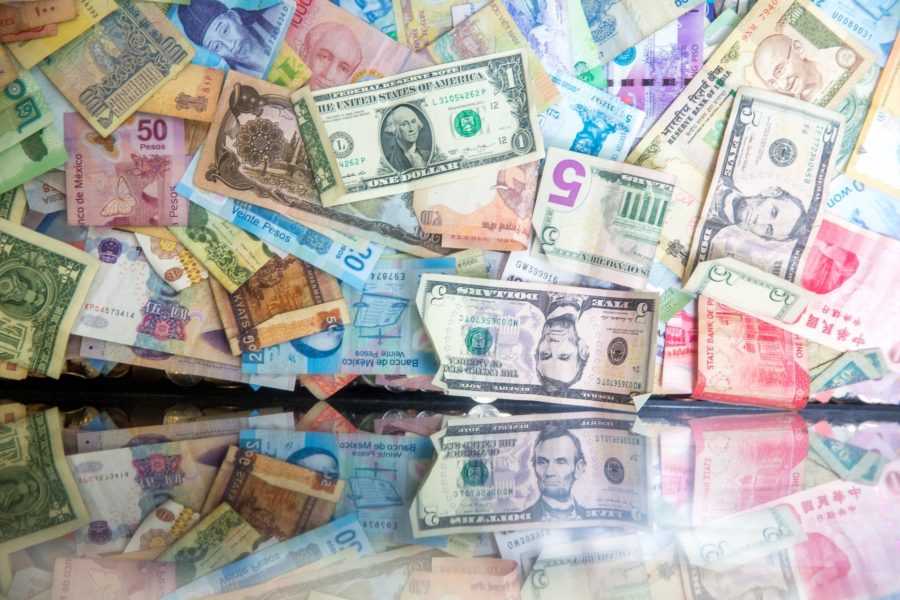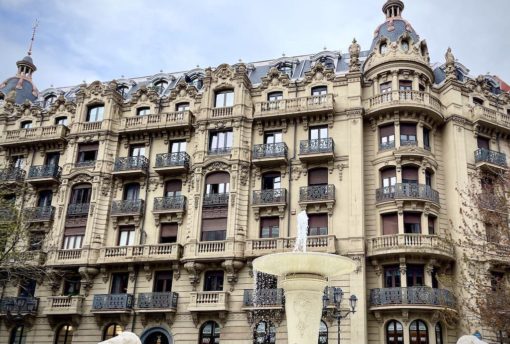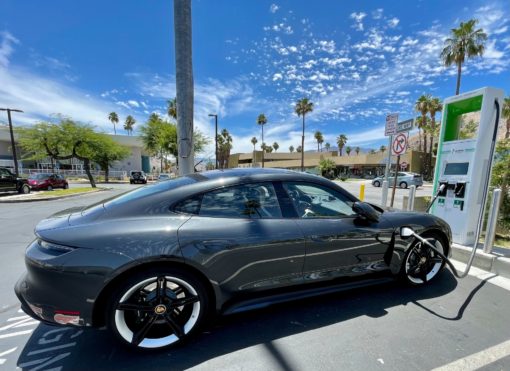
Why Cash Flow Is King In Time Of Crisis
Seldom is the world straddling 4 crises at the same time: highest inflation in decades, energy shortage leading to escalating prices, a senseless Russia-Ukraine war and global supply chain bottleneck that shows no signs of abating. How to keep your head above water in time fo such crises?
Each and every one of us will feel the impact in varying degrees depending on geographical location and personal circumstance. No one will be spared from the effect of some or all of the crises so it makes sense to hunker down with a strategy to deal with the impending and likely prolonged hardship. Besides these actions to counter inflation, here are additional ideas.
Cash is King…Really?
People say ‘cash is king’. This is true in a sense but simply holding on to cash is not smart in the current climate of high inflation and uncertainty. In fact, holding cash beyond the proverbial emergency funds and war chest, is no longer wise even during normal times.

Why? Because cash is a depreciating asset. It does not produce meaningful cash flow, especially in an environment of low or even negative interest rates.
If you plan to live from your savings in retirement, you run the risk of outliving your funds as money loses its value fast without any underlying assets to prop it up. Out-living one’s funds is a real risk due to increasing life expectancy. And if you think you are well-covered by relying on the much-hyped 4% withdrawal rule for retirement, think again. The 4% rule is fraught with shortcomings.
Will The Real King Please Stand Up?
The real king is…CASH FLOW, the stream of money that pays for daily needs and whatever luxury one desires. Cash flow is what is left from earnings after deducting all expenses:
Cash flow = total inflow (earnings) – total outflow (expenses)
A positive cash flow means more money is being collected (inflow) than being spent (outflow). Cash flow is true power. It gives confidence and peace of mind, enabling one to stay above water not only during a crisis but at all times.
It is a well-known fact that profitable companies can go bust from lack of cashflow. In fact, insufficient cash flow is the most common reason why companies are forced to shutter as they cease being a viable ongoing concern. Profit on paper is meaningless if there is not sufficient cash flow for operational expenses.
Same concept applies on a personal level. One may have wealth in terms of assets but if that wealth is not accessible as cash flow for daily living, one can easily go under or become stressed. A person with wealth tied mostly to his residential home and low cash flow runs the risk of not being able to meet increase in living expenses, as in the current situation brought on by the triple whammy of inflation, post-pandemic recovery and soaring energy prices.

Cash flow is the lifeline for everyday living. It pays bills, buys food, provides shelter, heats up the home, fills up the car tank, pays medical bills, education fees and covers any emergency needs. The more the cash flow the bigger the wriggle room and breathing space. So what can one do to safeguard or increase cash flow to meet higher living costs?
Reduce Expenses
- Daily life: This runs the gamut from cancelling unnecessary or bearable-to-lose costs such as gym membership – walk or run in the neighbourhood instead, hang-dry laundry instead of using the dryer, switch off apparatus such as refrigerator and modem if going away for more than 2 weeks, plan route to maximise petrol usage, switch to public transport or walk whenever feasible.
- Go electric: There is never a better time than now to switch to an electric car. Many folks, including my husband and I, have been holding out for longer driving range, better charging network and more variety of car models but the impetus takes on a greater urgency now given the financial sensibility.

- Tap Your Privileges: Use the privileges from banks, credit cards and other memberships accorded for loyalty or transactional value.
We wanted an outdoor BBQ and was planning on the same model a friend highly recommended. But we decided to make use of our loyalty points to purchase another model where we can enjoy 25% discount.
- Review debt: This is a good time to review debt to manage interest costs. The US Fed had just signalled its commitment to multiple rate hikes this year. If you have not already, consider fixing your variable mortgage rate or any other interests that are on variable basis.
If your mortgage is on fixed interest rate and expiring in the next 12 months or so, it may be worth renewing now to avoid much higher interest rates. Make sure to take into account all penalty charges for early renewal so all costs are included to arrive at the right decision.
- Reduce energy usage: Quick fixes include switching to LED bulbs, turning off electronic devices like TV fully instead of keeping on standby mode and regular servicing to keep air conditioners and heater in good working condition. Double glazed windows are more expensive to install upfront but will save costs in the long run so well worth considering.
- Follow the sun: The past 2.5 months, my husband and I headed to the south of Spain to avoid the cold. Day-time temperature in the Costa del Sol range between 16-24 degrees. Shutting down Netherlands in winter saves on heating expenses. The warmer climate in Spain spurred us to do more outdoor activities: golfing, cycling and walking along the Marbella Promenade, a boardwalk along tree-fringed beaches, improving our health and mood.

- Reduce living costs: With remote working increasingly viable and popular, why not chose to live where the cost of living is lower to stretch your cash flow? Spain is one such country and it will soon offer a Digital Nomad visa, clearly opening up choices for non-EU citizens with such an inclination.
Boost Earnings
In addition to managing expenses, the other route is to increase earnings or inflow. Here are some ideas that may be appealing:
- Side Gig: With the gig economy flourishing, there are many opportunities to take on a side hustle to increase income. Upwork and Fiverr are 2 popular platforms for creative and marketing freelancers. Seek out similar platforms or companies offering such services within your neighbourhood if you prefer local engagement.
- Sell unwanted items: Get rid of unwanted items and sell them on 2nd hand platform such as Marktplaats in the Netherlands, Carousell in Singapore, Ebay and Etsy in the USA or other sites that are popular in your country or area. Besides getting cash, you get to de-clutter at the same time, with the satisfaction that what you have sold is being put to good use.
- Teach a skill: If you are fluent in your native language, good in a musical instrument or a craft, you can offer to teach online or within your community. A Dutch friend of mine who is crazy over K-Pop is learning Korean online so she can understand song lyrics and be able to carry out basic communication when she visits Korea this summer. Her online learning is supplemented by conversational lessons with a native speaker based in Seoul.

- Room rental: In the current market where housing is in critical shortage in most areas, renting out a spare room gives a stable cash flow. This is one good way to monetise your asset.
- Part-time job: If you have time on your hand and are willing to trade that for part-time work, you can earn a stream of income to fortify your cash flow. Working also gives an opportunity to learn and widen social circle.
Protect Your Wealth
Last but not least, protect your wealth to keep what you already have. Do not get swayed by shiny objects that may turn out to be nothing but glitter dust. If you have never invested in cryptocurrency, now is not the time to venture into it, even if your friends are making a killing at it. Take time to learn before making any investment. If cash flow is King, then staying vigilant and safe is Queen.
If you have other ideas to tie over a crisis, do share!
Checkmate,
Savvy Maverick
(Main image: Jason Leung, Unsplash)
Disclaimer: The views expressed here are drawn from my own experience and do not constitute financial advise in any way whatsoever. Nothing published here constitutes an investment recommendation, nor should any data or content be relied upon for any investment activities. It is strongly recommended that independent and thorough research is undertaken before making any financial decisions, including consulting a qualified professional.

2 thoughts
Protect wealth and maybe even more important; ‘health’. By playing golf in Marbella I see you take care of both. 💕
You’re so right Ronald, health & wealth go hand-in-hand!
Cheers,
Savvy